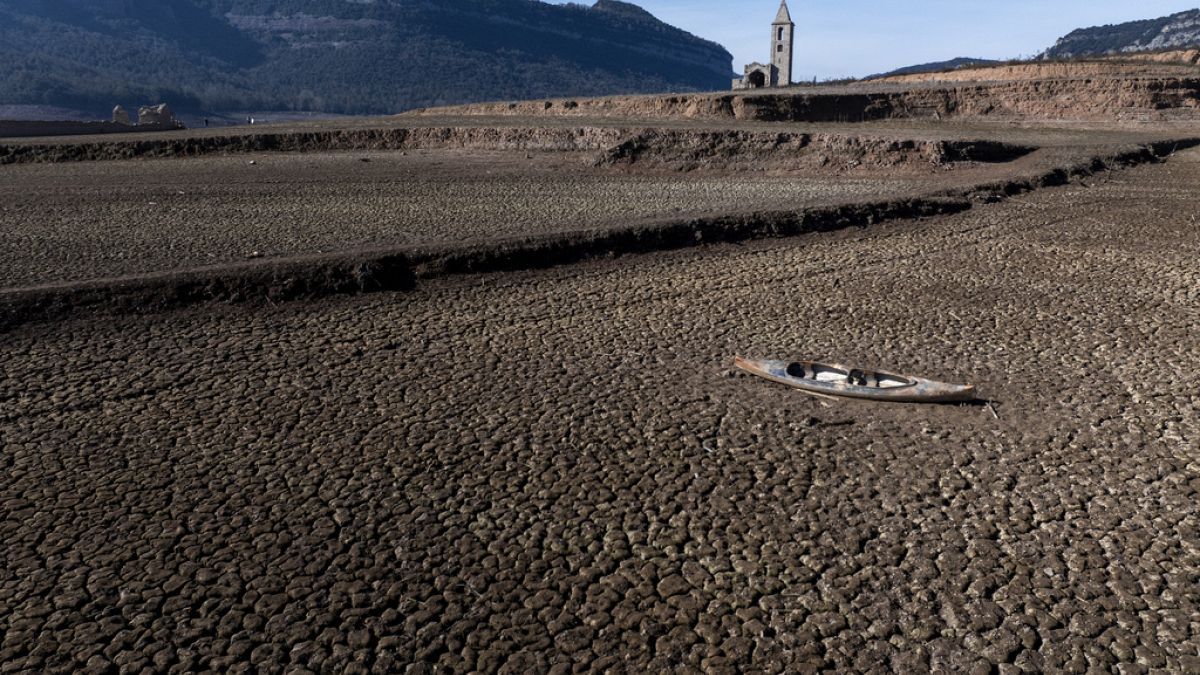The European Commission has taken a water resilience intiative, an EU response to increasingly frequent episodes of drought and flooding, off its agenda for the coming months, sparking fears that it has once again caved in to an anti-green backlash ahead of EU elections.
The European Commission has apparently suspended plans to boost water resilience, resulting in fury from green groups and industry bodies alike.
The EU initiative, announced in September by Commission President Ursula von der Leyen, was set to address increasingly frequent periods of drought and flooding that have had a devastating impact across Europe, and have been linked to climate change.
Maroš Šefčovič, the commission vice-president responsible for green policy, was scheduled to present the plans on 12 March, sending what proponents hoped would be a strong message to the next administration due to take office in the autumn.
But recent months have seen a number of U-turns on environmental policies, following widespread protests by farmers, and a broader conservative pushback against the flagship green deal package.
Brussels’ powerful agricultural lobby has made no secret of its misgivings about EU-level action on water scarcity, which could limit options for irrigation in areas suffering water stress.
A provisional agenda for weekly commission meetings released late on Wednesday (14 February) has removed all mention of the water crisis plan, with no later date given for its publication. The agenda was dated two days earlier and apparently produced after a weekly meeting of commissioners’ chiefs of staff.
A spokesperson for the commission told reporters the 12 March publication date had only ever been provisional – but that seems at odds with recent statements by EU officials.
After a mid-January meeting with national ministers, Environment Commissioner Virginijus Sinkevicius said the initiative was coming in March and would look at “how we can ensure that our water helps deliver a just, sustainable, and resilient economy”.
There was an immediate and forthright reaction in Brussels to the apparent shelving of the plans.
“I am appalled that the von der Leyen Commission has taken the irresponsible decision to halt the water resilience initiative when intense floods and droughts are already drowning or parching parts of Europe at an immense cost to communities, farmers, our food supply and nature,” said Claire Baffert, a policy officer at the WWF European policy office in Brussels.
“It makes absolutely no sense and can only be intended to make political gains in the run-up to the election,” Baffert said, referring to the EU-wide poll in June, and urging the EU executive to put the issue back on the agenda.
The water industry appeared perturbed, too.
Géraud de Saint-Exupéry, European director for US water technology firm Xylem, told Euronews that aging infrastructure was exacerbating Europe’s vulnerability, and that the bloc urgently needed a cohesive and well-funded response.
“Key priorities include upgrading water treatment and distribution infrastructure to minimise losses and boost efficiency; investing in cutting-edge technologies for the accurate monitoring and management of water resources; and enacting comprehensive policies for water conservation and the maintenance of water quality and quantity,” Saint-Exupéry said.
Representing water utilities, the Brussels-based industry group EurEau was similarly “deeply concerned” by the Commission’s move. The association noted that Portugal, Cyprus, Italy, Hungary and Romania had recently called for a more comprehensive, Europe-wide response to water insecurity, and said EurEau’s demand for a comprehensive EU strategy and action plan was shared by a growing number of stakeholders.
The association’s president Pär Dalhielm told Euronews he saw the shelving of the initiative as another instance of the Commission caving in to a growing backlash against its flagship green deal agenda. “And this is unfortunate as the withholding of the water resilience initiative has no winner,” Dalhielm said. “All sectors – from agriculture to energy, manufacturing to tourism – competing for our scarce and often polluted water resources will lose.”
A commission proposal on climate change resilience appears to still on the provisional agenda for 12 March.
















